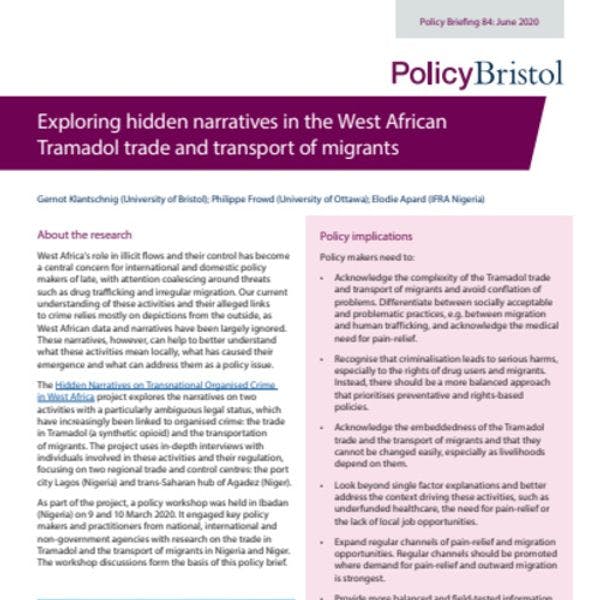Flickr - frankieleon - CC BY 2.0 - https://www.flickr.com/photos/armydre2008/4032015831/in/photolist-98pcKm-2bEWH56-2gnNUPY-WC9Khj-26ce8XE-RRdieb-bnexAq-YiTCc2-2hUiv9M-PxTbE7-4vhaBk-24UeaMc-KjwshL-2eDiavk-24KHMV-4hY77L-79i8Qk-pAxSSP-egi41f-2hUnbQi-2hUnbHj
Exploring hidden narratives in the West African tramadol trade and transport of migrants
By Klantschnig et al. (Policy Bristol)
West Africa’s role in illicit flows and their control has become a central concern for international and domestic policy makers of late, with attention coalescing around threats such as drug trafficking and irregular migration. Our current understanding of these activities and their alleged links to crime relies mostly on depictions from the outside, as West African data and narratives have been largely ignored. These narratives, however, can help to better understand what these activities mean locally, what has caused their emergence and what can address them as a policy issue.
The Hidden Narratives on Transnational Organised Crime in West Africa project explores the narratives on two activities with a particularly ambiguous legal status, which have increasingly been linked to organised crime: the trade in Tramadol (a synthetic opioid) and the transportation of migrants. The project uses in-depth interviews with individuals involved in these activities and their regulation, focusing on two regional trade and control centres: the port city Lagos (Nigeria) and trans-Saharan hub of Agadez (Niger).
As part of the project, a policy workshop was held in Ibadan (Nigeria) on 9 and 10 March 2020. It engaged key policy makers and practitioners from national, international and non-government agencies with research on the trade in Tramadol and the transport of migrants in Nigeria and Niger. The workshop discussions form the basis of this policy brief.
